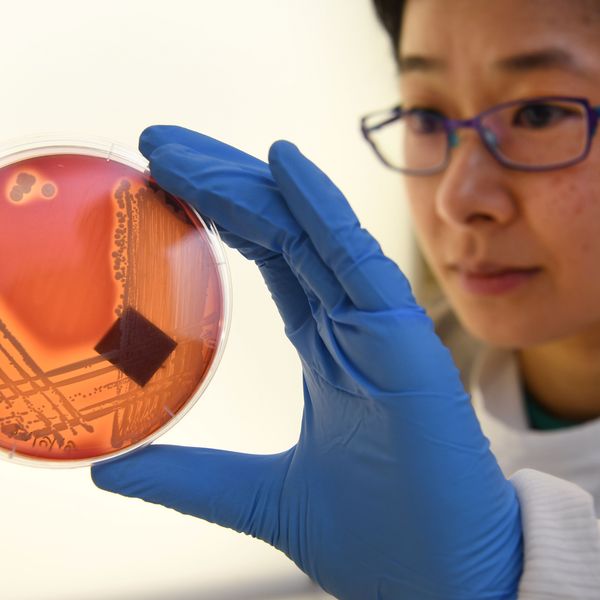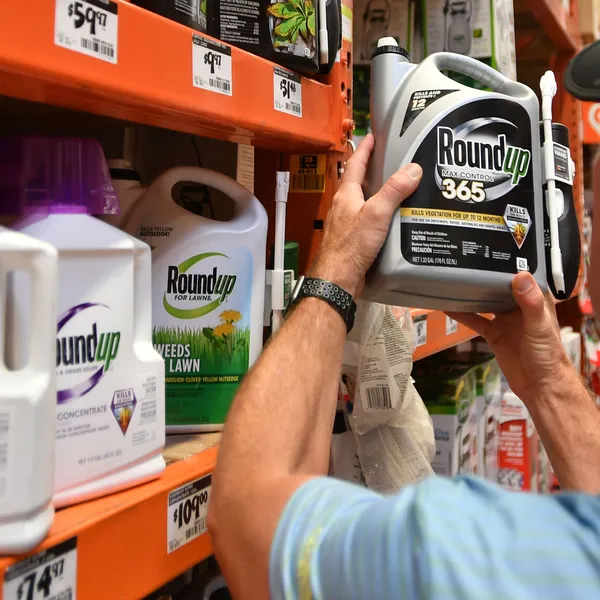Major Medical Marijuana Supplier Illegally Used Pesticides
"It's really a tragedy for the patients," said lobbyist for Medical Marijuana Caregivers of Maine
Maine's largest medical marijuana supplier came under fire this week following an investigation that revealed widespread illegal use of pesticides in a cultivation facility--raising health concerns for patients.
An employee of the supplier in question, the Wellness Connection of Maine, called the Maine Department of Health and Human Services earlier this month to report that the employer had been using pesticides on marijuana plants cultivated at the group's Auburn facility.
Maine's medical marijuana rules ban the use of all pesticides.
Subsequently, DHHS investigators conducted a surprise investigation at two marijuana cultivation facilities, and in turn found several types of pesticides and more than 20 other violations of rules governing medicinal marijuana in Maine.
Paul McCarrier, a lobbyist for Medical Marijuana Caregivers of Maine, told the Portland Press Herald, "It's really a tragedy for the patients."
He said the findings show that Wellness Connection's upper management was "encouraging workers to be deceitful" to "people who look to them to have a safe, clean medicine."
To keep operating, the group had to sign a consent agreement with DHHS, said Kenneth Albert, director of the DHHS Division of Licensing and Regulatory Services, that requires the group to stop using pesticides among other conditions. However, it does not require them to take the tainted products off of the shelves. Wellness Connection will be allowed to sell the rest of the products until they run out, but must inform all patients who receive the tainted marijuana of its harmful contents.
Wellness Connection, Maine's largest medical marijuana supplier, runs half of the state's medical marijuana clinics and services around 2,400 patients.
_______________________
An Urgent Message From Our Co-Founder
Dear Common Dreams reader, The U.S. is on a fast track to authoritarianism like nothing I've ever seen. Meanwhile, corporate news outlets are utterly capitulating to Trump, twisting their coverage to avoid drawing his ire while lining up to stuff cash in his pockets. That's why I believe that Common Dreams is doing the best and most consequential reporting that we've ever done. Our small but mighty team is a progressive reporting powerhouse, covering the news every day that the corporate media never will. Our mission has always been simple: To inform. To inspire. And to ignite change for the common good. Now here's the key piece that I want all our readers to understand: None of this would be possible without your financial support. That's not just some fundraising cliche. It's the absolute and literal truth. We don't accept corporate advertising and never will. We don't have a paywall because we don't think people should be blocked from critical news based on their ability to pay. Everything we do is funded by the donations of readers like you. Will you donate now to help power the nonprofit, independent reporting of Common Dreams? Thank you for being a vital member of our community. Together, we can keep independent journalism alive when it’s needed most. - Craig Brown, Co-founder |
Jacob Chamberlain is a former staff writer for Common Dreams. He is the author of Migrant Justice in the Age of Removal. His website is www.jacobpchamberlain.com.
Maine's largest medical marijuana supplier came under fire this week following an investigation that revealed widespread illegal use of pesticides in a cultivation facility--raising health concerns for patients.
An employee of the supplier in question, the Wellness Connection of Maine, called the Maine Department of Health and Human Services earlier this month to report that the employer had been using pesticides on marijuana plants cultivated at the group's Auburn facility.
Maine's medical marijuana rules ban the use of all pesticides.
Subsequently, DHHS investigators conducted a surprise investigation at two marijuana cultivation facilities, and in turn found several types of pesticides and more than 20 other violations of rules governing medicinal marijuana in Maine.
Paul McCarrier, a lobbyist for Medical Marijuana Caregivers of Maine, told the Portland Press Herald, "It's really a tragedy for the patients."
He said the findings show that Wellness Connection's upper management was "encouraging workers to be deceitful" to "people who look to them to have a safe, clean medicine."
To keep operating, the group had to sign a consent agreement with DHHS, said Kenneth Albert, director of the DHHS Division of Licensing and Regulatory Services, that requires the group to stop using pesticides among other conditions. However, it does not require them to take the tainted products off of the shelves. Wellness Connection will be allowed to sell the rest of the products until they run out, but must inform all patients who receive the tainted marijuana of its harmful contents.
Wellness Connection, Maine's largest medical marijuana supplier, runs half of the state's medical marijuana clinics and services around 2,400 patients.
_______________________
Jacob Chamberlain is a former staff writer for Common Dreams. He is the author of Migrant Justice in the Age of Removal. His website is www.jacobpchamberlain.com.
Maine's largest medical marijuana supplier came under fire this week following an investigation that revealed widespread illegal use of pesticides in a cultivation facility--raising health concerns for patients.
An employee of the supplier in question, the Wellness Connection of Maine, called the Maine Department of Health and Human Services earlier this month to report that the employer had been using pesticides on marijuana plants cultivated at the group's Auburn facility.
Maine's medical marijuana rules ban the use of all pesticides.
Subsequently, DHHS investigators conducted a surprise investigation at two marijuana cultivation facilities, and in turn found several types of pesticides and more than 20 other violations of rules governing medicinal marijuana in Maine.
Paul McCarrier, a lobbyist for Medical Marijuana Caregivers of Maine, told the Portland Press Herald, "It's really a tragedy for the patients."
He said the findings show that Wellness Connection's upper management was "encouraging workers to be deceitful" to "people who look to them to have a safe, clean medicine."
To keep operating, the group had to sign a consent agreement with DHHS, said Kenneth Albert, director of the DHHS Division of Licensing and Regulatory Services, that requires the group to stop using pesticides among other conditions. However, it does not require them to take the tainted products off of the shelves. Wellness Connection will be allowed to sell the rest of the products until they run out, but must inform all patients who receive the tainted marijuana of its harmful contents.
Wellness Connection, Maine's largest medical marijuana supplier, runs half of the state's medical marijuana clinics and services around 2,400 patients.
_______________________

